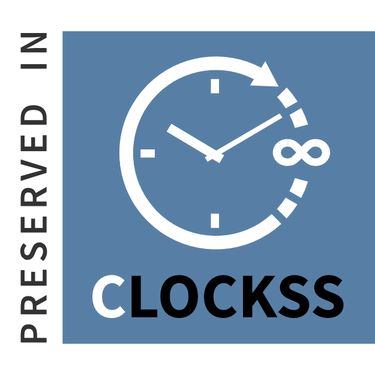Psychological flow and its relation to the personal characteristics of members of youth centers in Dohuk governorate
Abstract
The subject of psychological flow and personality traits is one of the important topics in psychology, because it is one of the basic determinants of the behavior of the individual, and for this has received the attention of many scientists and researchers, hence the current research that seeks to build and apply the measure of psychological flow and personal characteristics of the members of the youth centers in Dohuk province and the research was based on the descriptive approach, as the research community included members of the youth centers in Dohuk province and their number (220) The research sample consisted of (60) affiliates, and summarized the objectives of the research as follows:
To know the level of psychological flow and personal characteristics of the members of the youth centers of Dohuk governorate?
To identify the relationship between the psychological flow and personal characteristics of the members of the youth centers of Dohuk governorate?
In the light of the results of the research and its discussion within the limits of the sample, the researchers concluded the following:
- Members of youth centers in Dohuk province have a high level of psychological flow and personality traits in general.
- There is a statistically positive correlation between both psychological flow and personality traits among members of youth centers in Dohuk governorate.
The researchers recommend the following:
- Conduct further studies related to psychological flow and personality traits and on mathematical and non-sports samples using the metrics studied in this study.
- Building psychological programs aimed at enhancing the level of psychological flow and personality traits of youth center members in Dohuk governorate.
References
أبو حطب، فؤاد وفهمي، محمد سيف الدين (1984) : معجم علم النفس والتربية, مجمع اللغة العربية، القاهرة.
-أبو زيد، إبراهيم احمد (1987) : سيكولوجية الذات والتوافق, دار المعرفة الجامعية، الإسكندرية , مصر.
-الأمام، مصطفى واخرون ( 1990 ) : التقويم والقياس, دار الحكمة، بغداد , العراق.
-الجلبي، سوسن شاكر (2005) : أساسيات بناء الاختبارات والمقاييس النفسية والتربوية,ط1، مؤسسة علاء الدين للطباعة والتوزيع، دمشق، سوريا.
الحوري, عكلة سليمان و العزاوي, كامل عبود (2012): الاعداد النفسي للرياضيين , ط1, دار الكتاب الثقافي , اربد , الاردن .
-الحوري , عكلة سليمان (2008) : علم النفس التدريب الرياضي , ط1 , مطبعة ابن الاثير للطباعة و النشر , جامعة الموصل , العراق .
-راتب , اسامة كامل (2000) : علم نفس الرياضة المفاهيم و التطبيقات, ط3 , دار الفكر العربي , القاهرة , مصر .
-راتب ,اسامة كامل (2006) : الرعاية النفسية للبطل الرياضي ,مجلة الجمعية المصرية لعلم النفس الرياضي , الاعداد النفسي للبطل الرياضي ,الاصدار الثالث ,القاهرة, مصر .
-رضوان , محمد نصرالدين (2006) : المدخل الى القياس في التربية البدنية و الرياضية ,ط1 , مركز الكتاب للنشر , القاهرة , مصر .
-ظاهر و عبدالكريم , كمال عارف , سعاد (2001) : مقارنة تقدير مفهوم الذات الجسمية و البدنية بين لاعبات كرة اليد و كرة الطائرة , مجلة التربية الرياضية , المجلد10,العدد4 ,جامعة بغداد, العراق .
عزيز , هوار معصوم (2021) : التدفق النفسي و علاقته بالسمات الشخصية على وفق بعض المتغيرات لمنتسبي مراكز الشباب في محافظة دهوك , رسالة ماجستير غير منشورة , جامعة الموصل , العراق .
-عفراء ,ابراهيم خليل ( 2016): التدفق النفسي لدى طلبة الجامعة في ضوء متغير الجنس والتخصص الدراسي, المؤتمر العلمي الرابع , كلية التربية ابن رشد, جامعة بغداد, العراق.
-الغريب, رمزية (1996) : التقويم والقياس النفسي والتربوي, مكتبة الانجلو المصرية, القاهرة,مصر.
القيسي , ندا مهدي حسين (2020): القيم الرياضية وعلاقتها بسمات الشخصية للاعبي المنتخبات الوطنية العراقية , رسالة ماجستير غير منشورة، جامعة بغداد, العراق .
-Barrown, FG.( 1983), Principles of Education and psychological Testing Holt. Rinehart and Winston, century crofts New York.
-Jackson, S.A. & Eklund, R.C. (2008). "Assessing flow in physical activity: The flow stat scale-2 and dispositional flow state scale.
-Mihaly Csikszentmihalyi & Hunter, J. (2003) Happiness in everyday life: The uses of experience sampling. Journal of Happiness Studies Volume, 4.















